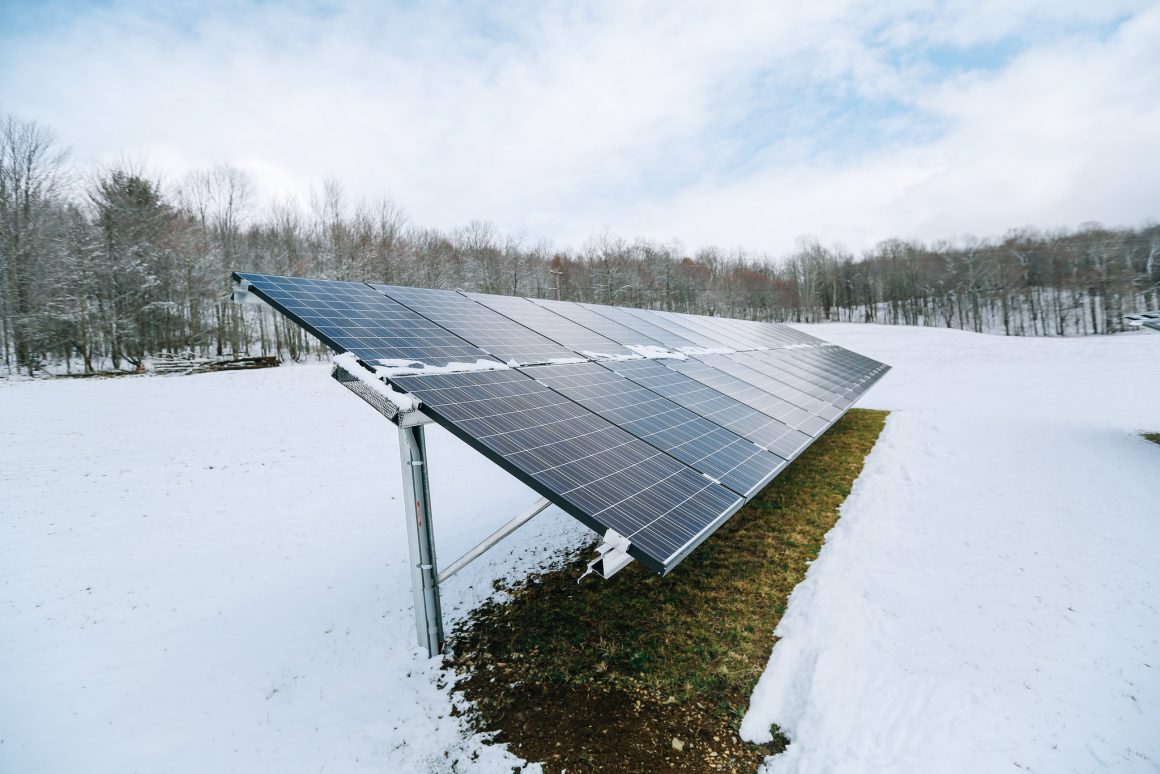
Permeate hosts Green New Deal town hall
By Nikayla Goddard, November 13 2019 —
Around 40 supporters of climate change action gathered at the Kerby Centre on Nov. 11 to discuss a Green New Deal policy package being built specifically for Calgary. Attendees were shown an information presentation, able to ask questions and participate in a session afterwards to workshop the proposal to make it even better.
The town hall was hosted by Permeate, a group that consists of community members, university students and volunteers concerned about and taking action towards climate change. The proposal they put together, after more refinement, will be put out to Calgarian stakeholders involved in climate activism, sustainable development and municipal government. They also have a list of immediate implementable policy suggestions for City Council, which can be found on their website.
The presentation consisted of six main topics for action, including social ecology, food security and land conservation, housing, social services, transit and the energy sector. The topics each included immediate municipal tasks directly for Calgary and longer-term provincial and federal goals.
Social ecology outlined a large-scale revolution to eliminate capitalist-consumerist thought and strive to build sustainable cooperative communities.
Food security and land conservation focuses on empowering communities through local organic food production, utilizing unused public land for community gardens, lifting restrictions on poultry, goats, sheep and bees in Calgary and promoting hydroponics and greenhouses.
Housing is mainly about retrofitting and construction with recyclable building materials and installing renewable energy systems, as well as general reforms such as abolishing housing debt and creating affordable housing to fix the housing crisis.
The social services topic considered things from a community and an educational perspective. For communities, public health care and expansion of public services were key points. For education, free tuition, updating the curriculum to include climate change and environmental stewardship and instigating LGBTQ+ protections and GSAs were a major focus.
For transit, free transit was the biggest point, along with diversifying city-supplied transportation modes and expanding accessibility.
The last topic was on the energy sector and the need to move to renewable energies through a “just transition” — meaning not obliterating non-renewable energy economies entirely, but transitioning in a manner that involves little job loss and little effect on the general economic production. This is done through green apprenticeships, employment, mental health counselling and most importantly consulting with fossil-fuel-relying communities to ensure that smooth transition.
Following this presentation, the six topics were broken up into groups where attendees were welcome to discuss with panel members. The breakout groups allowed Permeate to receive feedback and ideas for revisions or additions to their Green New Deal that strengthens their policy proposals.
Permeate member Joy Shokeir remarked on the importance of creating a Green New Deal that was catered specifically to the city.
“Calgary is the second-highest emitting city in Canada due to urban sprawl and inadequate transit infrastructure,” Shokeir said. “Moreover, Calgary is the heart of the oil oligarchy that has harmed Calgarian families through subsidy theft and boom-bust economics. Making a Green New Deal for Calgary will protect our shared environment, employ tens of thousands of Calgarians in well-paid careers and improve the quality of life. The time has come for Calgary to embrace climate action.”
Another Permeate member, Valerie Kim, said, “We will not settle for anything less than directly matching the demands of Calgarians. A Green New Deal for Calgary’s specific issues solves two problems. Firstly, federal politics are too broad to deal with how we live life in Calgary. Federal politics can only serve as a backdrop for our local politics. Secondly, the climate proposals of the federal political parties are inadequate responses to climate change, so we need local policies to help spur national change. The research and conversation surrounding this movement patches up these gaps.”
Permeate aims to hold regular town hall events every six weeks to two months. Future Green New Deal town hall dates will be published on their website.
